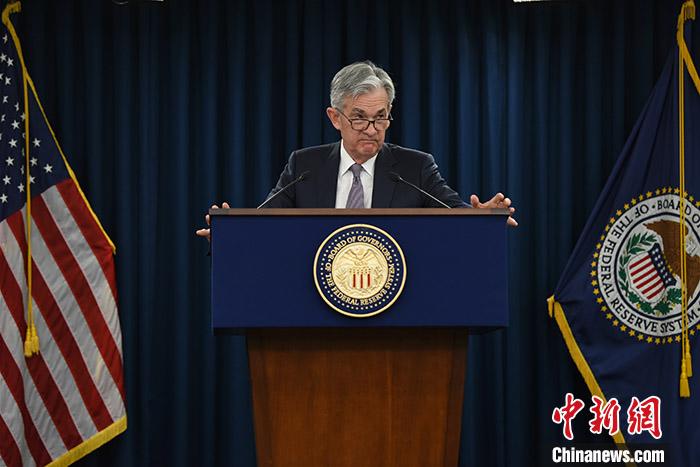China News Agency, New York, March 4 (Reporter Wang Fan) The Chairman of the Federal Reserve Board Powell said in an online event on the 4th that the United States is unlikely to return to full employment in 2021 and the Fed will continue to maintain a loose currency. policy.
Data map: Fed Chairman Powell.
Photo by China News Agency reporter Chen Mengtong
Powell made the above remarks at the "Wall Street Journal" Employment Summit held that day.
He said that although there are good reasons to expect that the employment growth situation in the United States will improve in the next few months, the road to economic recovery is still long, and the job market may not be able to reach full employment this year.
Recently, rising inflation and rising U.S. bond yields have caused market tensions and increased volatility in risky assets such as U.S. stocks.
Powell said, "The restart of the economy may put a certain upward pressure on prices." He said that the current inflation rate is at a level of about 1.5%. Even if it briefly breaks through 2% in the future, as long as it is anchored at this level, it will not be enough to change the Fed. Loose monetary policy.
Regarding the rise in U.S. bond yields, Powell only said that the matter attracted his attention, but did not make substantive comments.
When asked if the Fed might raise interest rates earlier, Powell said that raising interest rates requires the economy to return to a state of full employment, and requires the inflation rate to reach the target of 2%, and the inflation rate is expected to stabilize at or moderately higher than 2%. , But he believes that none of these things will happen during the year.
"Until these conditions are met, the Fed will not raise interest rates," Powell said.
Powell also answered questions on the Fed’s guidance, the relationship between employment and inflation, and the new round of economic stimulus plans. During the period, he mentioned that he was highly alert to the out-of-control inflation that occurred in the United States from the 1960s to the 1970s, and emphasized that the Federal Reserve Will not let history repeat itself.
On that day, the three major U.S. stock indexes rose in early trading, but after Powell’s speech, they plunged collectively. Among them, the Dow Jones Industrial Average fell by more than 700 points at most. As of the close, the three major stock indexes closed down across the board.
At the same time, the U.S. 10-year Treasury bond yield rose from the lowest level of 1.45% on the day to around 1.55%.
The US Consumer News and Business Channel (CNBC) quoted analysts as saying that Powell’s speech was consistent with his previous statement and did not express concern about rising U.S. Treasury yields and failed to appease investors’ worries.
On March 3, the Federal Reserve announced the Beige Book of Economic Outlook Survey compiled by the Atlanta Fed. Most local Federal Reserves said that from January to mid-February this year, economic activities in the jurisdiction expanded moderately and employment levels increased, but employment growth slowed. As the distribution of the new crown vaccine advances, companies will have an impact on the economy in the next 6 to 12 months. The outlook is optimistic. (Finish)

